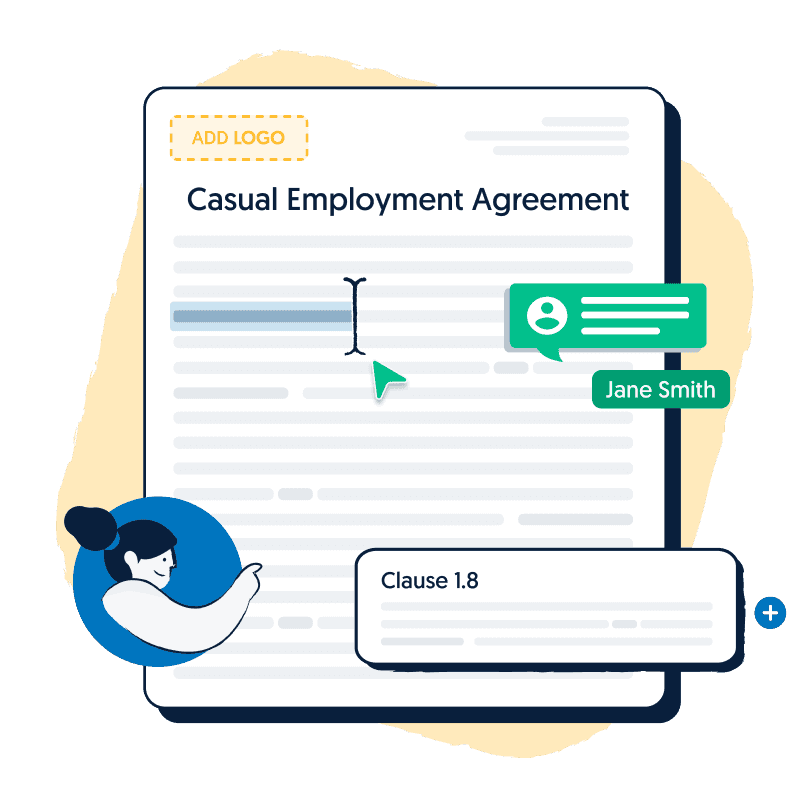Different laws apply to different types of business. Most notably, smaller businesses are often subject to different rules compared with larger companies. This includes terminating employees – whether it be dismissing an employee due to redundancy or performance. In this article, we’ll explain how redundancy works for small businesses. Although redundancy can be difficult for both employers and employees, it’s important the business owners know how to do it the right way.
What is a small business?
A small business is defined in Australian employment law as having fewer than 15 employees. The number of employees is counted when the employee is told their employment will be terminated, or a notice of termination is given (whichever occurs first).
When calculating the number of employees, take into account:
- The employee you are terminating
- Anyone other employees you plan to terminate
- Full-time, part-time and only regular and systemic casual employees employed at the time of the redundancy
- Employees in associated entities, including overseas ones
Redundancy
Redundancy occurs where your business no longer needs a certain job to be done. This can happen for many reasons, including if your business is in financial trouble or you’re outsourcing the job. Only full-time and part-time employees can receive redundancy pay, and only if they have been employed at the business for more than 12 months. In order for a redundancy to not constitute an unfair dismissal, it needs to be genuine.
Genuine Redundancy
Employees cannot claim unfair dismissal for termination due to a business downturn, or if their position no longer exists because these redundancies are genuine. This is when operational changes to a company nullifies the need for a job position, and there is compliance with the duties of the relevant industry award or enterprise agreement. Additionally, the employer should exhaust attempts to redeploy the employee elsewhere in the business. However, filling the former employee’s position with a new employee is not a genuine redundancy.
The Small Business Fair Dismissal Code provides a checklist that assists with determining whether there is a genuine redundancy. The main themes of the checklist are to:
- Warn the employee (verbally or in writing) of the possibility of dismissal if they don’t improve their performance
- Give the employee the time to show improvement in performance or conduct
- Provide additional training to the employee
Termination of an employee without warning or notice is fair in cases of serious misconduct. Serious misconduct is theft, fraud, violence and serious breaches of occupational health and safety operations.
Casual employees
Many small businesses hire employees on a casual basis. Due to the nature of casual employment, casual employees are not entitled to redundancy pay. However, if a casual employee has been working at your business for more than 12 months, they may be able to claim leave entitlements or long service leave if they have been employed for 10 years or more.

Get your Casual Employment Agreement now for free.
Hire casual employees in any industry. This Employment Agreement (Casual) is essential when hiring new employees for your business.
When Do Small Businesses Have to Pay Redundancy Pay?
The majority of small businesses won’t need to pay their employees redundancy. However, under modern awards in Australia, some industries might have to pay redundancy to employees. These industries include those covered by the Textile, Clothing, Footwear and Associated Industries Award 2010 and the Manufacturing and Associated Industries and Occupations Award 2010. To check if you need to pay redundancy to employees, find your industry on Fair Work Australia’s redundancy pay calculator.
Employers must still pay a redundant employee their final pay entitlements, even if not required to pay redundancy under a modern award. This includes unpaid or owed wages, accumulated annual leave, and accrued long service leave (where applicable).
Conclusion
Small business employers will generally not be required to pay redundancy, if it is genuine. Only employers in certain industries will pay redundancy pay, but all employers need to pay complete final pay entitlements to terminated employees. Despite this, it is always best to check with an employment lawyer to cover all your bases when terminating an employee.

Get a fixed-fee quote from Australia's largest lawyer marketplace.






